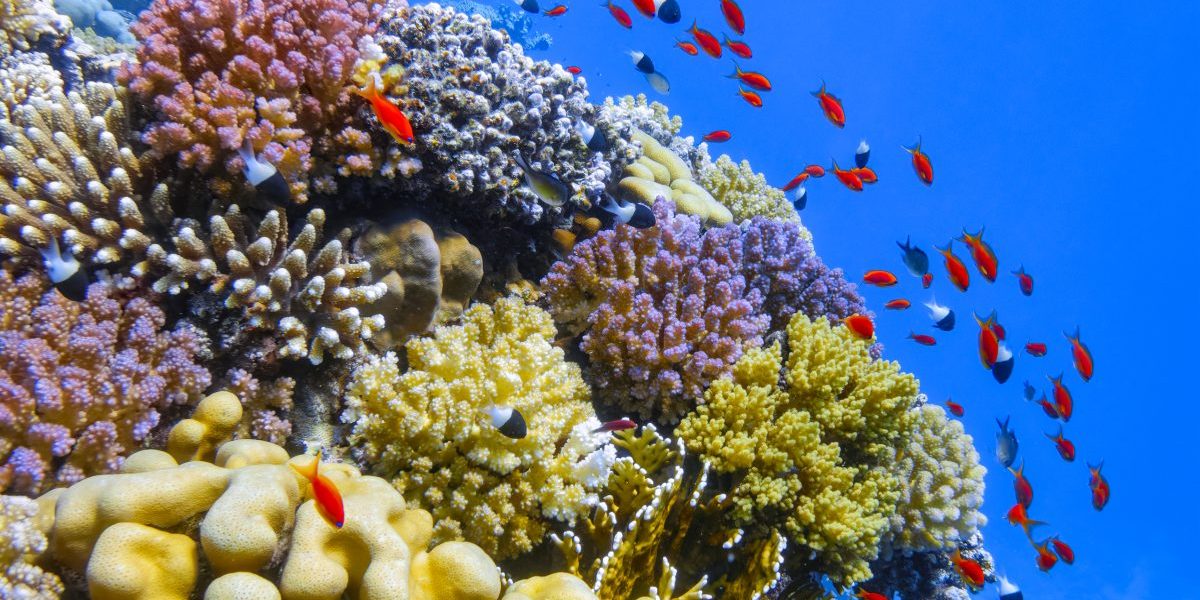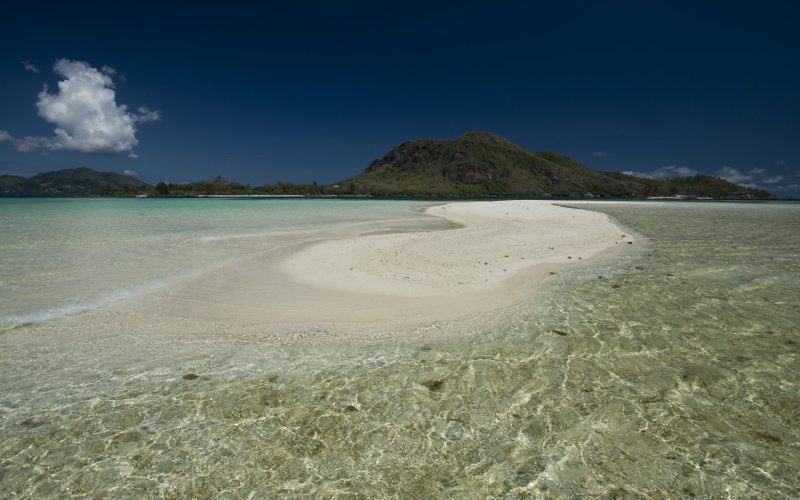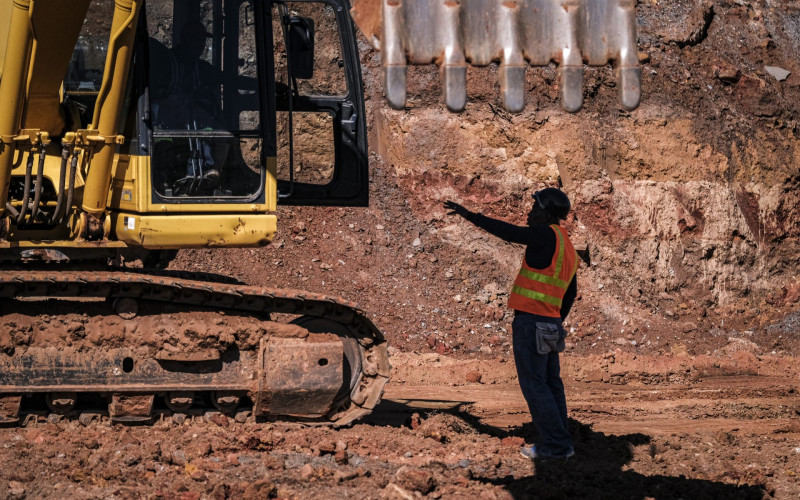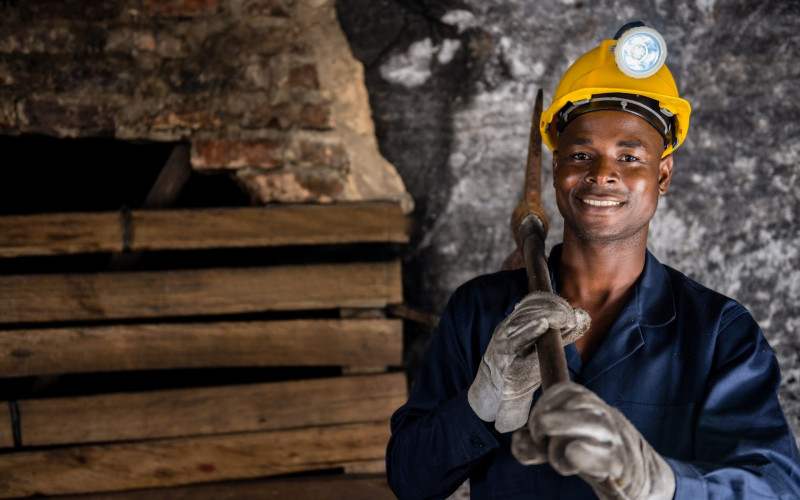Recommendations
- An effective partnership approach is foundational to the success of blue economy incubators and accelerators, and should be prioritised in the establishment and operation of such programmes.
- Blue economy or maritime clusters should be strengthened in Africa and more effective links to blue economy incubators and accelerators should be forged in these clusters.
- Blended finance should be leveraged in blue economy incubator and accelerator programmes, drawing on emerging insights and financing models from existing regional and global incubator and accelerator programmes.
Executive summary
Oceans have been described as the quintessential sustainable development issue, as they sustain the global economy and are a critical resource, fundamental to human survival. The importance of the blue economy is reflected in various policy frameworks of the AU, including its overarching developmental framework, Agenda 2063. Partnerships with the private sector, and the development of business models compatible with the principles of a sustainable blue economy, are essential elements of regional and global blue economy ambitions. Blue economy accelerator and incubator programmes provide a mechanism through which ocean-based businesses can be nurtured and scaled so that they can contribute meaningfully to a sustainable blue economy. However, these programmes are nascent in developing countries, particularly in Africa. This policy brief reviews regional and global practice related to ocean-based incubators and accelerators, highlighting key emerging lessons for Africa.
Introduction
The blue economy is prominent on Africa’s political agenda, as reflected in several continental policy frameworks, including the AU Blue Economy Strategy (2019). The strategy guides the sustainable development and use of aquatic resources in Africa, contributing to the continent’s transformation and growth. It builds on earlier policy frameworks such as the 2050 Africa’s Integrated Maritime Strategy (2014) and the African Charter on Maritime Security, Safety, and Development (Lomé Charter, 2016).
There is growing recognition that achieving a more integrated and sustainable blue economy requires effective partnerships with the private sector. The High-Level Panel for a Sustainable Ocean Economy, for example, says that ‘enduring sustainability can only be achieved if best practices are applied in both the public and private sectors and where productive partnerships between the two are encouraged and advanced’.1UN Environment Programme and Nairobi Convention, A Strategic Framework for Private Sector Engagement in the Western Indian Ocean Region (Nairobi: The Sapphire Project, 2021).
The imperative to establish partnerships with the private sector for a sustainable blue economy is also reflected in African regional frameworks, policy forums and initiatives. The AU Blue Economy Strategy identifies the enhancement of partnerships between the public
and private sector as one of its key objectives. The 18th session of the African Ministerial Conference on the Environment 2UNEP, “Report of the Ministerial Segment of the Eighteenth Session of the African Ministerial Conference on the Environment” (Paper, 18th Session of the African Ministerial Conference on the Environment, online, September 16, 2021). also highlighted the need for such partnerships. Within the Western Indian Ocean region, the Western Indian Ocean Large Marine Ecosystems Strategic Action Programme Policy Harmonization and Institutional Reforms project has developed a Strategic Framework for Private Sector Engagement in the Western Indian Ocean Region (2021). In addition, the Western Indian Ocean Governance Initiative is establishing a multi-stakeholder platform (that will include private sector stakeholders) called Our Blue Future.
This growing recognition of the importance of the private sector to ocean governance and sustainable blue economies has ignited interest in the role of financing and innovation in support of sustainable ocean-based businesses. As part of this debate, there is increasing interest in the role that incubators and accelerators can play in supporting ocean-based businesses in a manner that aligns with the objectives of a sustainable blue economy. This policy brief reviews regional and global practice related to ocean-based incubators and accelerators, highlighting key emerging lessons for Africa.
Blue economy incubators and accelerators
Blue economy incubator and accelerator programmes have been identified as important mechanisms to incentivise blue finance for ocean solutions. These programmes may include focus areas such as aquaculture, climate action, maritime and shipping, tourism, and digital solutions for the blue economy (‘blue-tech’). Broadly, incubators tend to work with entrepreneurs in the early stages of a business, helping them with the foundational aspects of starting their business. Accelerators tend to engage with companies that are already established, focussing on helping these companies expand, attract investment or introduce new products or services.3Robbie Richards, “Accelerators vs Incubators: How to Choose the Right One”, MassChallenge, June 10, 2021. Both models may provide physical and technical infrastructure, advisory services, mentoring and finance. In practice, the delineation between incubators and accelerators is often not clear cut, and a single organisation may offer both incubation and acceleration support.
OceanHub Africa is an example of an organisation that provides both incubation and acceleration services. It was launched in 2020 as the first blue economy accelerator/ incubator in Africa, and offers a six- to eight-month programme with a range of services and advisory support. It also provides direct funding support, assistance in preparing investor pitches and other finance-related aspects, and access to a network of impact investors. The sustainability of the programme is supported through percentage-based success fees that programme participants are required to pay on fundraising and commercial contracts emerging from their participation in the programme.
Examples of start-ups from past OceanHub Africa cohorts include South Africa-based Inseco, which farms insects and produces protein powder used for aquaculture feed and other applications. This model can reduce the demand for wild-caught fish for use as fish feed in the aquaculture sector, thereby helping to address one of the key sustainability concerns of the sector (wild-caught fish account for about one-third of the feed used for farmed salmon).4SalmonFacts.com, “Is Salmon Feed Sustainable? Do Farmed Salmon Eat Wild Fish?” May 26, 2016. Tanzania-based Plant Biodefenders has created a climate-resilient and organic pesticide named Vuruga that promotes food security and enhances small-scale farmers’ revenue. It also helps to regenerate coastal and marine ecosystems by reabsorbing chemicals that may wash into the ocean and obviates the need for harmful pesticides that could end up in coastal ecosystems and damage marine life.
There are few other examples of blue economy-focused incubators and accelerators in Africa, but interest is beginning to grow. The Guy Morel Institute, a training centre based in Seychelles, has recently partnered with the Seychelles Conservation and Climate Adaptation Trust (SeyCCAT) to launch an accelerator programme for blue economy-based businesses. SeyCATT provides grants to aspiring entrepreneurs, but observed that few organisations were applying for funding, and, among those who had received funding, few had the capacity to sustain their projects or businesses. The blue accelerator programme was duly developed in partnership with the Enterprise Seychelles Agency, Seychelles Fishing Authority, Seychelles National Youth Council, and National Institute for Science Technology and Innovation. It is aimed at improving the capacity of local businesses to apply for and meaningfully implement SeyCATT funding, as well as secure further investment beyond SeyCATT’s funding contribution.
Pangea Accelerator is a Norwegian-based accelerator with a specific focus on supporting African start-ups across a range of thematic areas, including blue economy. The initiative brings together expertise, financing and support services from a wide range of partners, including investment promotion agencies (Innovation Norway), academia (Strathmore University), private sector foundations and enterprises (Ikea Foundation, Hilti Foundation, Pivotic, Microsoft), investors (African Business Angel Network, Viktoria Ventures) and linked accelerators and innovation networks (@iBizAfrica, UK-Kenya Tech Hub, AfriLabs). Its blue economy accelerator is linked to the BlueLab Africa blue economy cluster.
Various African accelerator programmes focus on fields such as agriculture and food security, technology-based industries and health that provide valuable insights for emerging blue economy accelerator programmes. These include accelerators focused on agriculture and food security (Katapult Africa, Food Africa Accelerator), digital economy (PesaTech, FAST Accelerator, Africa Startup Initiative) and health (Making More Health, Next Health Accelerator).
BLUE ECONOMY INCUBATORS AND ACCELERATORS: GLOBAL EXAMPLES
Hatch Blue: Established in 2017, this accelerator programme focuses on the aquaculture industry. Its programme seeks to support innovative and scalable solutions that solve significant problems in the aquaculture industry in order to enable its long-term sustainability.
Ocean Solutions Accelerator Programme: The Sustainable Ocean Alliance runs this four-week accelerator programme. In the longer term, programme participants are connected with the Sustainable Ocean Alliance Mentorship Programme, which includes a global network of more than 150 mentors with expertise in technology, entrepreneurship, conservation, science, sustainability and business. To date, the accelerator programme has supported 45 companies from 16 countries, which have subsequently raised over $200 million in funding.
Katapult Ocean: This Norwegian-based programme invests in and accelerates tech start-ups working in the food space (such as aquaculture, mariculture and alternative proteins), transport, energy (innovations in the offshore energy sector), natural assets (protecting ocean habitats and maintaining biodiversity), infrastructure (waste management, carbon capture or contributing to the circular economy) and new frontiers such as data analytics, robotics and ocean exploration. It combines 90 days of intense workshops, networks and learning sessions with investments.
SeaAhead: The US-based accelerator works with blue-tech start-ups to accelerate growth and investment through a network of mentors, service providers and investors. Its focus is on greener shipping and ports, aquaculture and fishery processes, offshore energy, plastics and smart, resilient cities.
Australia’s ocean impact innovation ecosystem and start-up accelerator aims to improve ocean health and achieve commercial success. Launched in 2020, it focuses on pollution and biodiversity protection, ocean harvesting, harnessing renewable energy from the ocean, alternative transport and security, increasing ocean literacy, sustainable tourism, ocean accessibility, large-scale seaweed farming, marine bio solutions and marine biomimicry.
In 2016, a blue economy incubator in San Diego Bay was established to seek out innovative aquaculture and blue-tech proposals to address the Port’s environmental challenges and inform future blue economy opportunities. The Port has launched nine pilot projects, including shellfish nursery operations, copper remediation technology, a drive-in boat wash, a smart marina application, a marine debris removal vessel, seaweed aquaculture, bio-enhancing shoreline armouring technology, and a new approach to soil remediation in marine environments.
DigiCirc is an EU-funded initiative that runs accelerator programmes for circular cities, bioeconomy and blue economy. It seeks to promote the use of digital technologies in support of circular economy approaches within these thematic areas.
Lessons learnt
Strengthen blue economy partnerships
Partnerships are key to effective incubator and accelerator programmes. These organisations typically bring together a wide network of partners to provide mentoring and support across a range of themes. Such themes include business design, operational management, technology and communications support, marketing, financial management and resource mobilisation. Physical, technological and web-based infrastructure support is also essential for new businesses, and these services may be provided by a range of partners. Finally, an important role that incubators and accelerators can play is in linking entrepreneurs with broader networks of investors and other key stakeholders. Public– private partnerships have significant potential to contribute to these efforts, for example, by partnering private sector impact investors and service providers with public investment promotion or small business development agencies.
Establish blue economy clusters
The blue economy concept encompasses a range of industries and an even broader set of stakeholders from government, businesses, financing institutions, academia and other research institutions, civil society organisations and others. Governments and other actors
have established maritime clusters to bring together stakeholders to attract investment and promote efficiency, cooperation and innovation. Traditionally, these clusters have focused on fostering ‘place-based’ economic synergies, such as with the eThekwini Maritime Cluster, centred around the Port of Durban in South Africa, the Maritime Cluster of West Sweden, or the Iceland Ocean Cluster. Clusters may also have a narrower thematic focus, such as the French Observatory for Ocean Energies. There are also cluster network organisations that promote collaboration among clusters in a broad geographic area, for example, the Blue Tech Cluster Alliance or the European Network of Maritime Clusters. Not all clusters are place-based – they can also include hybrid place- and policy-based organisations or those focused solely on contributing to policy dialogue at national or regional levels. Clusters may include incubators or accelerators within their networks and are well suited to support the kind of partnerships and collaboration typical of such programmes.
Incorporate blended finance to drive meaningful private sector engagement
Blended finance uses public, philanthropic or development finance to encourage the deployment of private capital to achieve a positive impact.5Ryan Whisnant and Vandeweerd Veerle, “Investing in the New Blue Economy: The Changing Role of International Development Organizations in Catalyzing Private Sector Investment in Support of Regional Strategic Action Programmes for the Sustainable Development of Coasts and Oceans”, Journal of Ocean and Coastal Economics 6, no. 1 (2019): 8; Food and Agriculture Organization, Blue Finance Guidance Notes: Blended Finance (Rome: FAO, 2020). Blended finance approaches can help to de-risk and crowd in investment from private sector sources through initial support from public or philanthropic sources. Mobilising blended finance is especially important in developing countries that are reliant on the blue economy but have restricted access to public finances. Funding may initially be sourced from public, philanthropic or development finance institutions with an eye to future investment by private and public investors, or may involve blended finance in the initial phases of the programme. An example of the former is the Blue Accelerator Grant Scheme in Fiji, which is funded in its initial stages by the UN Development Programme (UNDP). Projects selected for the accelerator programme are given support by the Fijian government’s climate finance and insurance incubator (Drua), the UNDP’s Inclusive Growth team, the Accelerator Lab in the Pacific and private sector partners. Initial financial support from the UNDP through impact grants is intended to attract venture capital and angel investors, while projects will also be linked with commercial debt financing from the Blue Investment Fund created by Fiji’s Blue Bond Issuance.
Conclusion
Blue economy incubator and accelerator programmes are mechanisms that can incentivise blue finance for sustainable ocean solutions. These programmes support ocean-conscious entrepreneurs and can help them pursue sustainable pathways that generate profits and support livelihoods without undermining the marine ecosystems on which humanity depends. There is significant potential to expand such programmes within Africa, but this can only be done through effective, multi-stakeholder partnerships. Opportunities to link or embed incubation and acceleration programmes with maritime or blue economy clusters on the continent should be promoted. Finally, blended finance approaches can de-risk and crowd in financing that can effectively help sustainable ocean-based businesses to establish themselves and to scale up.
Acknowledgement
SAIIA gratefully acknowledges the support of SIDA for this publication.







